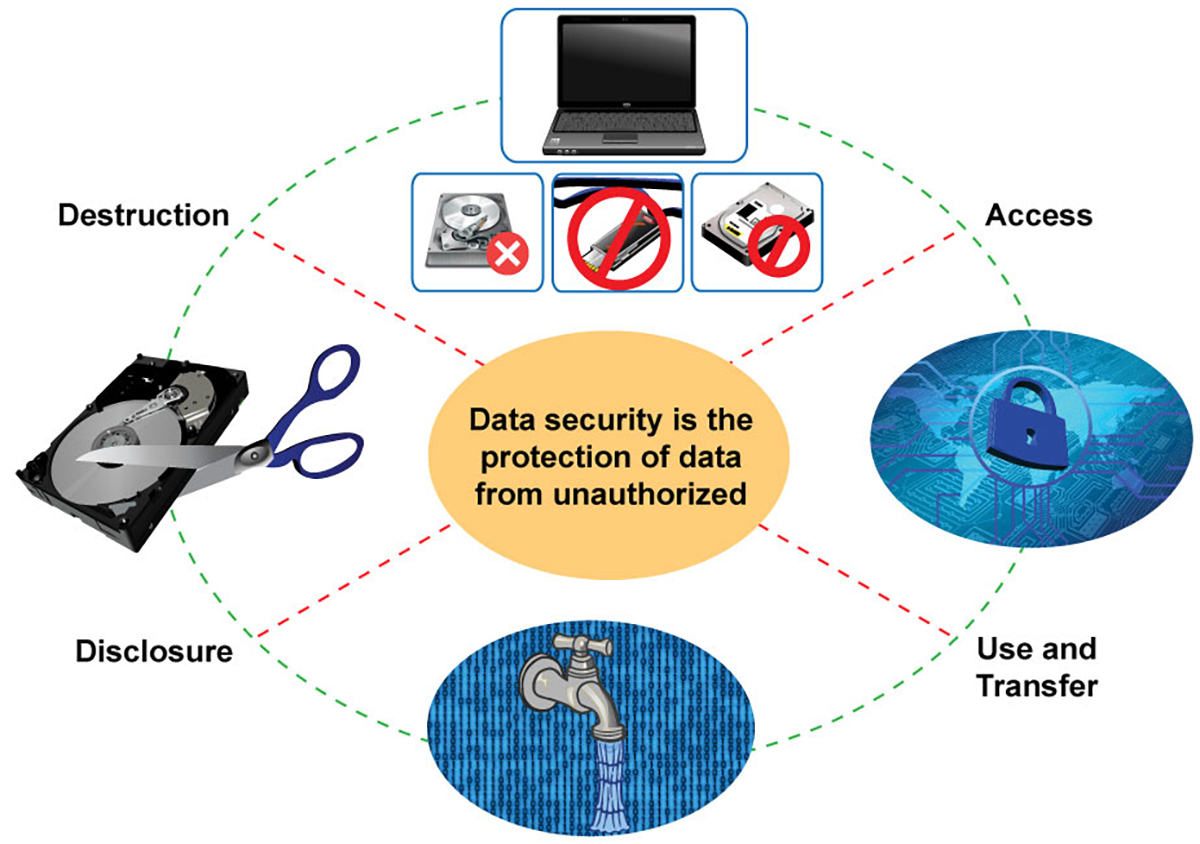Enhancing Cyber Security through Advanced Data Destruction Approaches
Enhancing Cyber Security through Advanced Data Destruction Approaches
Blog Article
The Relevance of Effective Information Destruction Practices in Shielding Sensitive Info and Ensuring Computer Safety And Security
In an age where information violations are significantly usual, the significance of effective information destruction practices can not be overstated. Applying robust data devastation techniques not just mitigates these risks however likewise straightens with legal conformity needs, guaranteeing that companies support their reputation and foster client depend on.
Comprehending Information Damage
Comprehending information damage is important in today's electronic landscape, where delicate information can conveniently be jeopardized. Reliable information destruction includes not just making sure yet removing data that information is irretrievable through extensive methods. This process is essential for organizations that take care of personal client info, intellectual residential or commercial property, or inner files, as any kind of breach can result in severe financial and reputational effects.
Data devastation encompasses numerous methods, consisting of shredding physical media, degaussing magnetic storage space tools, and using software-based solutions that overwrite data several times. Each method serves a details purpose and must line up with the level of sensitivity of the details being thrown away. Physical damage is commonly liked for difficult drives including extremely confidential information, while software application methods could suffice for much less sensitive info.
Additionally, adhering to sector requirements and guidelines, such as the General Information Defense Guideline (GDPR) or the Medical Insurance Mobility and Accountability Act (HIPAA), is important for compliance and to minimize lawful threats. Organizations must establish a robust information destruction plan, train employees on ideal practices, and consistently examine their treatments to make certain that all sensitive information is gotten rid of firmly and efficiently.
Dangers of Inadequate Practices
Poor information damage methods expose organizations to substantial threats that can have far-ranging effects. When delicate details is not appropriately thrown away, it stays susceptible to unapproved accessibility, which can lead to data violations and identification theft. Such incidents not only endanger the protection of people but likewise stain the company's online reputation, causing a loss of client depend on and potential economic repercussions.
Furthermore, regulatory conformity is progressively stringent in lots of industries. Failing to stick to data destruction guidelines can lead to significant penalties and legal actions against organizations. These penalties can stress funds and draw away attention from core business operations.
Furthermore, the abuse of residual data can cause copyright burglary or corporate espionage, threatening affordable benefits (data destruction). The effect of insufficient information destruction extends past immediate monetary losses; it can likewise cause long-term damages to brand integrity and market setting

Organizations should recognize that information protection is not exclusively regarding stopping breaches; it additionally includes the responsible administration of information throughout its lifecycle. Disregarding effective data damage protocols can have tragic ramifications, emphasizing the need for durable actions to reduce these risks.
Ideal Practices for Information Damage
Executing effective data destruction methods is crucial for protecting delicate information and preserving compliance with governing criteria. Organizations needs to adopt a multi-faceted technique to make sure that data is irretrievable, thereby preventing unapproved access and potential violations.
First, data should be categorized based upon sensitivity, enabling companies to use appropriate damage methods customized to the level of danger. For electronic data, using software-based data-wiping devices that abide with industry standards can properly overwrite existing data. Physical destruction techniques, such as shredding or degaussing, are crucial for gadgets that save delicate details, guaranteeing total obliteration.
Establishing a clear data retention plan is vital, outlining how long different kinds of details must be kept before destruction. Routine audits of information storage systems are also necessary to identify unnecessary or obsolete information requiring removal.
Moreover, training staff members on the importance of data devastation and the particular procedures to comply with fosters a society of safety and security within the organization. Lastly, keeping documentation of data destruction processes gives responsibility and sustains compliance with inner policies and external guidelines. By adhering to these best practices, organizations can dramatically mitigate the threats related to data direct exposure.
Legal and Compliance Factors To Consider

Failure to abide with these laws can result in serious charges, including substantial penalties and reputational damage. Organizations must execute a durable information damage policy that lines up with these legal frameworks and supplies clear guidelines on the proper methods of information disposal, whether physical shredding or electronic wiping.
Furthermore, keeping site web paperwork of information devastation tasks is crucial for showing conformity throughout audits or inspections. By prioritizing legal and compliance factors to consider, organizations can boost their data safety and security pose and foster depend on with customers and stakeholders, inevitably adding to a more safe data monitoring environment.
Advantages of Effective Information Damage
Efficient data devastation practices expand beyond simple compliance; they use considerable advantages to organizations that prioritize them. By guaranteeing that sensitive info is irretrievably destroyed, organizations mitigate the threat of information violations and the possible financial consequences related to them. This positive approach not just safeguards versus unapproved accessibility however additionally enhances the total trustworthiness of the company in the eyes of stakeholders and customers.
Applying robust data destruction approaches, such as physical Clicking Here destruction of storage devices or innovative data cleaning methods, contributes to the fortifying of a company's cybersecurity pose. data destruction. It minimizes the probability of copyright theft and shields exclusive info, thereby keeping an one-upmanship in the market

Final Thought
In conclusion, reliable data devastation practices are important for protecting sensitive details and improving total computer system security. Inevitably, a dedication to durable data destruction strategies fosters a society of duty, therefore strengthening an organization's cybersecurity position and keeping customer trust fund.

Report this page